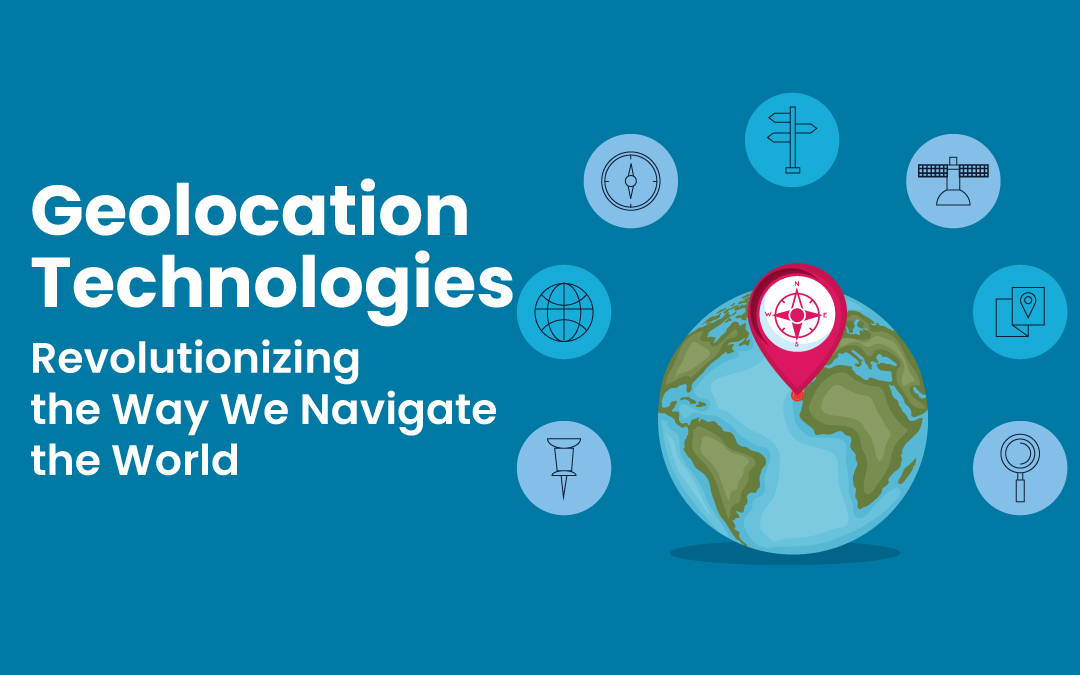
Welcome to the modern era, where the world is literally at your fingertips, and the term 'lost' is quickly becoming a thing of the past. Geolocation technologies refer to various tools and methods that enable us to determine the real-world location of something or someone. This can include a device, a vehicle, or even an individual. From GPS satellites high above us to local Wi-Fi networks, these technologies harness the power of electronic signals to pinpoint locations with remarkable accuracy.
Importance of Geolocation in Modern Society
Geolocation technologies are pivotal in daily life in our dynamic, interconnected world. They not only help us navigate through unfamiliar cities but also facilitate a multitude of functions across different sectors. The impact of these technologies has been profound, shaping everything from how we travel to how we manage businesses, and this is only the start.
Evolution of Geolocation Technologies
Early Geolocation Methods
Before today's high-tech systems, early navigators relied on the stars, landmarks, and rudimentary maps to traverse the world. While effective for their time, these methods pale compared to the precision and ease offered by modern geolocation technologies.
Development of GPS and its Impact
The game changed with the advent of the Global Positioning System (GPS), a space-based satellite navigation system owned by the United States government and operated by the United States Space Force. First made available for civilian use in the 1980s, GPS has since become the cornerstone of geolocation, allowing for real-time positioning with unparalleled accuracy.
Current Applications of Geolocation
Navigation and Mapping Services
Navigation is among the applications where geolocation has become indispensable. It guides us to our destinations and helps us discover new places, check traffic conditions, and even find the nearest coffee shop. Geolocation has also paved the way for advanced air mobility (AAM), which aims to transform the urban transportation landscape by utilizing aerial vehicles to move people or goods between locations, often bypassing congested streets.
Geotagging in Social Media
Another popular application is social media, where geotagging allows users to add location data to their content. This might seem like a small addition, but it plays a significant role in storytelling, as it adds context to the pictures and updates shared online.
Location-Based Advertising
Businesses leverage geolocation for targeted advertising, pushing deals to consumers based on their proximity to stores, restaurants, or other points of interest. The success of these strategies is evident in the growing investment in location-based advertising each year.
Impact on Industries
Transportation and Logistics
Thanks to geolocation technologies, the transportation and logistics industry has witnessed a revolution. Fleet management has become more efficient, with companies able to track vehicles in real time, optimize routes, and reduce operational costs.
Emergency Services and Disaster Management
Geolocation plays a critical role in emergency services and disaster management. It helps in the efficient deployment of resources, tracking of individuals in need, and planning of evacuation routes. Technology is vital in saving lives and mitigating the impacts of natural and human-made disasters.
Retail and Consumer Services
The retail sector uses geolocation to enhance customer experience and engagement by offering location-based promotions. Consumers can also use geolocation technologies to find products and services in their vicinity, boosting local economies.
Future Trends
Advancements in Indoor Positioning Systems
Looking ahead, we see new developments such as indoor positioning systems (IPS), which aim to provide navigation inside complex structures like malls, airports, and hospitals where GPS signals may not penetrate effectively.
Integration with Augmented Reality
Augmented reality (AR) is also starting to blend with geolocation, offering immersive experiences that overlay digital information onto the real world. Imagine looking through your phone to see historical information about a landmark or navigating a building.
Ethical and Privacy Considerations
However, with great power comes great responsibility. It is crucial to address the ethical and privacy concerns surrounding the widespread use of geolocation. As society ventures deeper into this technology, the need for robust privacy laws and ethical guidelines becomes increasingly vital.
In the second half of our future, we see geolocation integration with systems like the LAANC provider - Avision, which stands for Low Altitude Authorization and Notification Capability. This service is reshaping how unmanned aerial systems (UAS) operate, allowing for safer and more efficient air-sharing between drones and manned aircraft.
Future Potential for Further Revolutionizing Navigation
As we look to the future, we can expect these technologies to continue their upward trajectory, further revolutionizing navigation and bringing forward innovations that we can only begin to imagine. The integration of geolocation into our lives and industries promises a world where getting from point A to point B is as seamless as ever, emergencies are managed more effectively, and the global market is literally at our doorstep. As we chart this exciting journey, let us be mindful of the ethical landscape that accompanies our technological sprint, ensuring that as we connect more deeply with the world, we do so with respect for privacy and personal freedom.
Conclusion
In conclusion, geolocation technologies have revolutionized how we navigate the world, influencing virtually every facet of modern society. The precision, convenience, and efficiency they offer are unmatched by any previous navigation method.
Share this post
Leave a comment
All comments are moderated. Spammy and bot submitted comments are deleted. Please submit the comments that are helpful to others, and we'll approve your comments. A comment that includes outbound link will only be approved if the content is relevant to the topic, and has some value to our readers.

Comments (0)
No comment